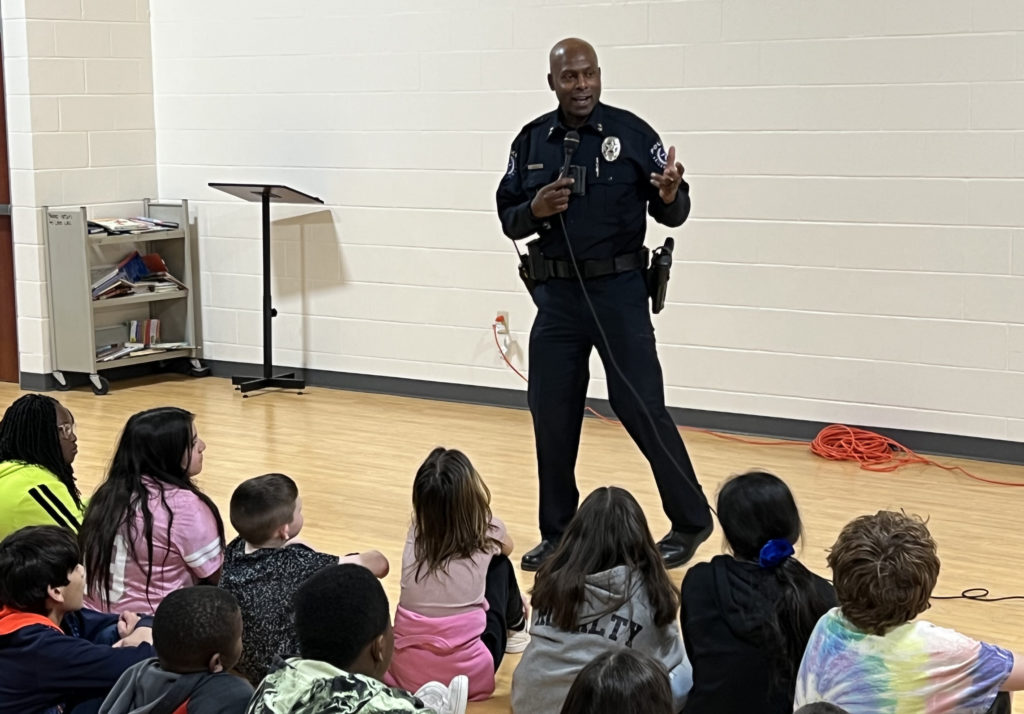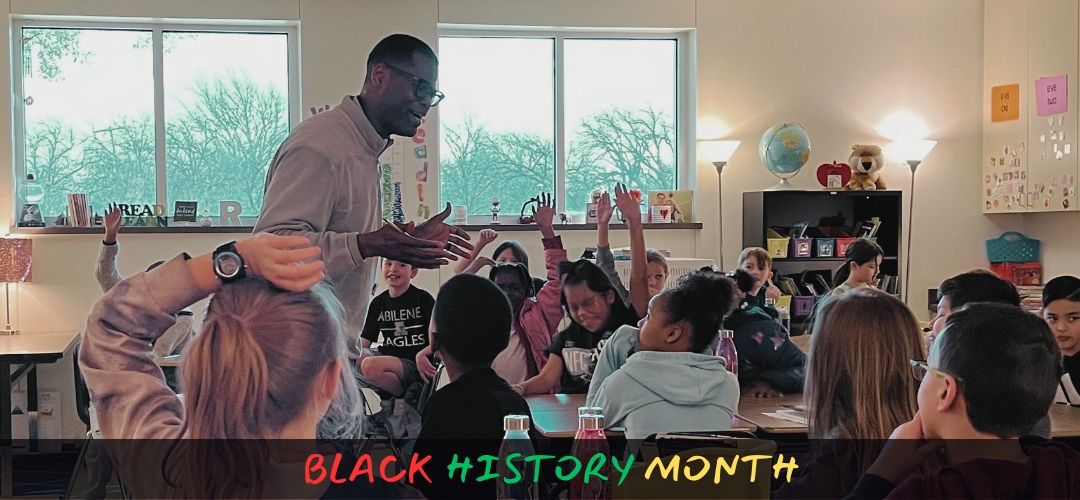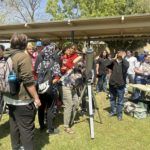While commemorating Black History Month throughout February was certainly the goal of each campus in the Abilene ISD, several schools put together programs specifically targeted at educating students on the month’s importance and what it means to the country.
Stafford Elementary School was no exception, as the school welcomed several guests onto campus on Feb. 15 to speak to students about the need for Black History Month and why it’s important to them.
Abilene City Councilman Travis Craver spoke to several classes and wanted to go home with a better understanding of Black History Month as an essential part of the American Experience.
“I want all students to see that this month should be meaningful to all of us,” he said. “Not just me individually, but how, collectively, Black History Month impacts and influences us in so many ways. The beautiful part of what we’re doing is helping students connect the dots to see why it’s important for all of us.”
Black History Month is an annual celebration of achievement by African Americans and a time for recognizing their central role in U.S. history. The event grew out of “Negro History Week,” the brainchild of historian Carter G. Woodson and other prominent African historians. Since Gerald Ford in 1976, every U.S. president has designated February as Black History Month.
“I don’t think I understood the importance of Black History Month until my parents began taking us to the library and introducing us to people we often didn’t hear about in school,” Craver said. “It was easy to understand the importance of Martin Luther King Jr. or Rosa Parks, but beginning to understand the contributions of other people to our history and culture made me realize there were more than one or two people in our history.”
That history, Craver said, is vital to remember while also pushing forward for a better future.
“I want students to know it’s important to understand the history but also understand the hope for a better tomorrow,” he said. “I want them to understand there’s no need for Black History Month without understanding the ugly history we endured as a people. But I also want them to understand the beautiful things that have come from those ashes and know that they have an opportunity to soar like so many people throughout history.”
 Abilene Police Department Chief Marcus Dudley also spoke to two groups, hoping to emphasize how far the country has come but how much work still needs to happen.
Abilene Police Department Chief Marcus Dudley also spoke to two groups, hoping to emphasize how far the country has come but how much work still needs to happen.
“This month is always important, but especially today when we have many issues that exist in some communities that are attributed to race,” Dudley said. “It’s important to have these opportunities to demonstrate that we are the kind of society that we believe we are: one that can – as Dr. King said – judge a person by the content of their character rather than the color of their skin. This is an opportunity for us to celebrate positive character and show that people – no matter their color or walk of life – have contributed to the greatness of this country.”
Dudley grew up in the 1970s in a small town in Oklahoma where segregation might not have been legal but was still in practice.
“I grew up on the side of town that was predominantly black, and we were all very poor,” he said. “Nobody around us was any better off than the other. We learned history in school, but there wasn’t much emphasis on black history. What I recall occurring in class was when we discussed things like the Civil War, I would sink back in my chair and hope people wouldn’t look at me or call on me when we discussed slavery and the different things people endured. I had a bit of shame that would come over me.”
But Dudley’s feelings and other not–so–pleasant memories of his pre-teen years have faded with time, mainly because he doesn’t want those to define him.
“My pride has taught me over the years to let those things go because it’s up to me what I’m going to do moving forward,” he said. “Those things don’t have to define me. What I like about this time is that we see kids take on a larger role in learning about our history because they recognize that some people paved the way for them. They’re excited to learn about them, and they’re excited to follow in those footsteps. And that’s how we continue to make this country better.”












